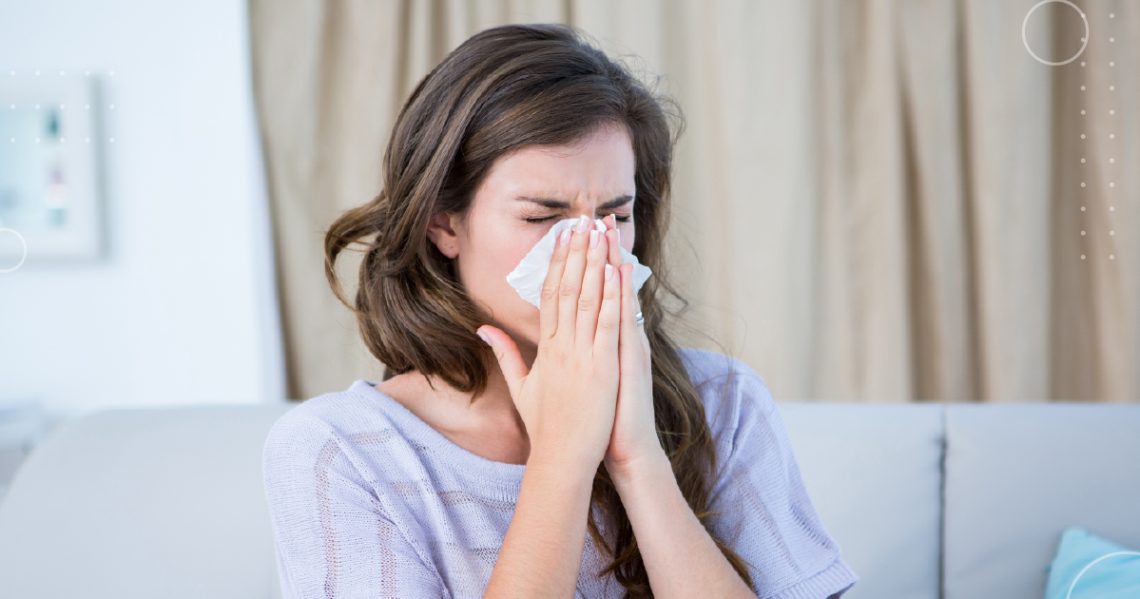Introduction
Allergies and asthma often go hand-in-hand, sharing common causes and mechanisms that affect the respiratory system. Many people with asthma also have allergies, and allergic reactions can trigger or worsen asthma symptoms. Understanding this link is essential for effective management and prevention of asthma attacks.
How Are Allergies and Asthma Connected?
Shared Immune Response
Both allergies and asthma involve an overactive immune system response to substances that are usually harmless. When an allergic person encounters an allergen, their immune system releases chemicals like histamine that cause inflammation and swelling.
In asthma, this inflammation occurs in the airways, making them narrow and sensitive, which leads to difficulty breathing. Allergic inflammation can therefore directly contribute to asthma symptoms.
Common Allergens That Trigger Asthma
- Pollen: Seasonal allergens from trees, grasses, and weeds.
- Dust mites: Tiny creatures living in household dust.
- Pet dander: Skin flakes and saliva from cats, dogs, and other animals.
- Mold spores: Found in damp areas indoors and outdoors.
- Cockroach droppings: Another indoor allergen linked to asthma.
Allergic Asthma: What Is It?
Allergic asthma is a type of asthma triggered primarily by allergens. People with allergic asthma often have:
- Other allergic conditions like hay fever (allergic rhinitis) or eczema.
- Positive allergy tests to common environmental allergens.
- Symptoms that worsen during allergy seasons or after allergen exposure.
Diagnosis and Testing
- Allergy testing: Skin prick tests or blood tests can identify specific allergens triggering symptoms.
- Spirometry and peak flow tests: Assess lung function and asthma severity.
- Symptom tracking: Helps correlate asthma attacks with allergen exposure.
Managing Allergies to Improve Asthma Control
Avoidance Strategies
- Keep windows closed during high pollen seasons.
- Use allergen-proof mattress and pillow covers.
- Regular cleaning and vacuuming with HEPA filters.
- Reduce indoor humidity to prevent mold.
- Keep pets out of bedrooms and off furniture.
Medications
- Allergy medications: Antihistamines, nasal sprays, and decongestants.
- Asthma controller meds: Inhaled corticosteroids and leukotriene modifiers help reduce inflammation.
- Immunotherapy (allergy shots): Can reduce sensitivity to allergens over time.
When to See a Doctor
If you notice that your asthma symptoms worsen with allergy seasons or specific exposures, or if your asthma is difficult to control, consult a healthcare provider for testing and tailored treatment.
Conclusion
Allergies and asthma are closely linked through shared immune pathways and common triggers. Managing allergies effectively is a crucial part of controlling asthma and reducing the frequency and severity of attacks. Through a combination of avoidance, medications, and possibly immunotherapy, many people with allergic asthma can achieve better breathing and quality of life.
FAQs
Can allergies cause asthma in someone who didn’t have it before?
Yes, allergies can increase the risk of developing asthma, especially in children.
Are all asthma patients allergic?
No, but allergies are a common trigger for many people with asthma.
Can allergy shots cure asthma?
They can reduce allergic sensitivity and improve asthma control, but are not a cure.
What’s the difference between allergic asthma and non-allergic asthma?
Allergic asthma is triggered by allergens; non-allergic asthma has other triggers like irritants or infections.
How can I tell if my asthma is allergy-related?
If symptoms worsen with allergen exposure or you have other allergy symptoms, allergic asthma is likely.






